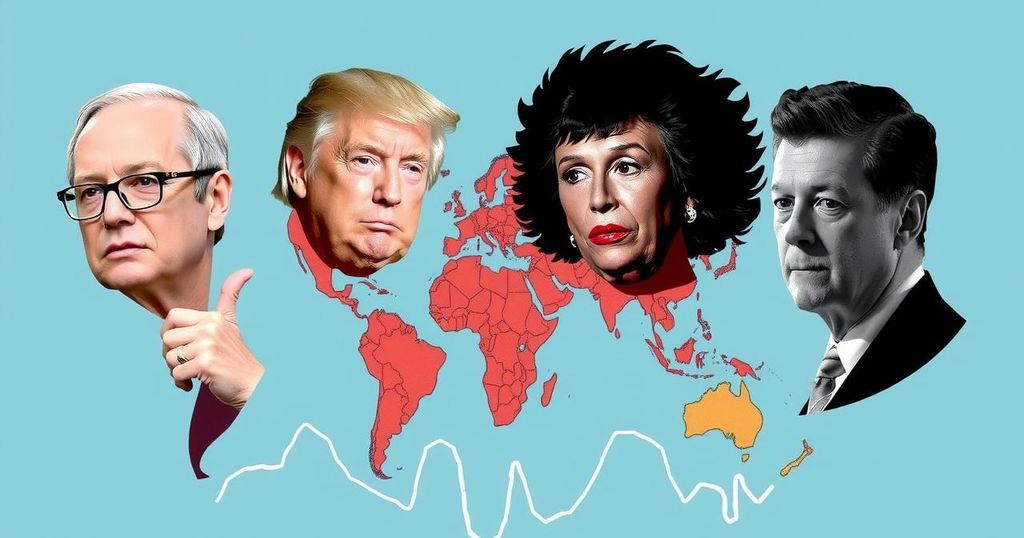Global Elections of 2024: A Year of Political Turmoil and Discontent
In 2024, global voters expressed dissatisfaction with their governments, leading to significant electoral outcomes where incumbents were often removed from power. This trend of anti-incumbency was fueled by economic difficulties and widespread unrest, notable in countries such as South Africa and India. Concurrently, the rise of populist movements and concerns over foreign influence marked a tumultuous year for democratic processes worldwide.
In 2024, voters around the globe sent a clear message, often encapsulated in the phrase, “You’re fired,” as they expressed dissatisfaction with incumbents during elections in roughly 70 countries. Authorities faced consequences from discontented populations, who opted for alternative leaders amid widespread economic distress and global instability influenced by events such as Russia’s invasion of Ukraine. The year was characterized by significant political upheaval, with nations like South Africa witnessing long-standing governing parties losing power, thereby entering coalitions with opposition groups.
Major elections encompassing countries such as India, the United States, Japan, and France featured dramatic outcomes, revealing a significant shift in voter sentiment against established political entities, many of which have dominated their respective governments for decades. This wave of political change included the emergence of disruptive figures and the rise of populist movements in various regions, indicating a global trend away from traditional political parties.
The impact of economic turmoil and political dissatisfaction also unleashed a surge of demonstrations, with notable instances of unrest in states like Mozambique and Georgia. Simultaneously, the influence of right-wing populism bolstered conservative factions throughout Europe, introducing a new political dynamic. Amidst these transformations, significant undercurrents of disinformation campaigns and alleged foreign interference have been reported, raising concerns about electoral integrity worldwide.
The article assesses the political landscape of 2024, marked by extensive electoral processes spanning multiple continents. With a significant number of elections taking place across nations that represent approximately half of the world’s population, there has been a discernible trend of voters expressing dissatisfaction with the status quo. This outcome has been attributed to various factors, including prolonged economic challenges stemming from the COVID-19 pandemic and the geopolitical ramifications of the conflict in Ukraine. The analysis highlights the complex interplay between democratic principles, voter sentiment, and the rise of populism in a volatile global context.
In summary, the year 2024 reflected a turbulent period for democratic governance as voters responded to declining economic conditions and rising political dissatisfaction by ousting incumbents across numerous countries. This shift reflects a growing demand for accountability and a desire for new leadership approaches amidst prevailing socioeconomic challenges. The increasing prominence of right-wing populism and allegations of electoral manipulation further complicate the political landscape as nations navigate their paths toward stable governance in the coming years.
Original Source: www.news4jax.com




Post Comment